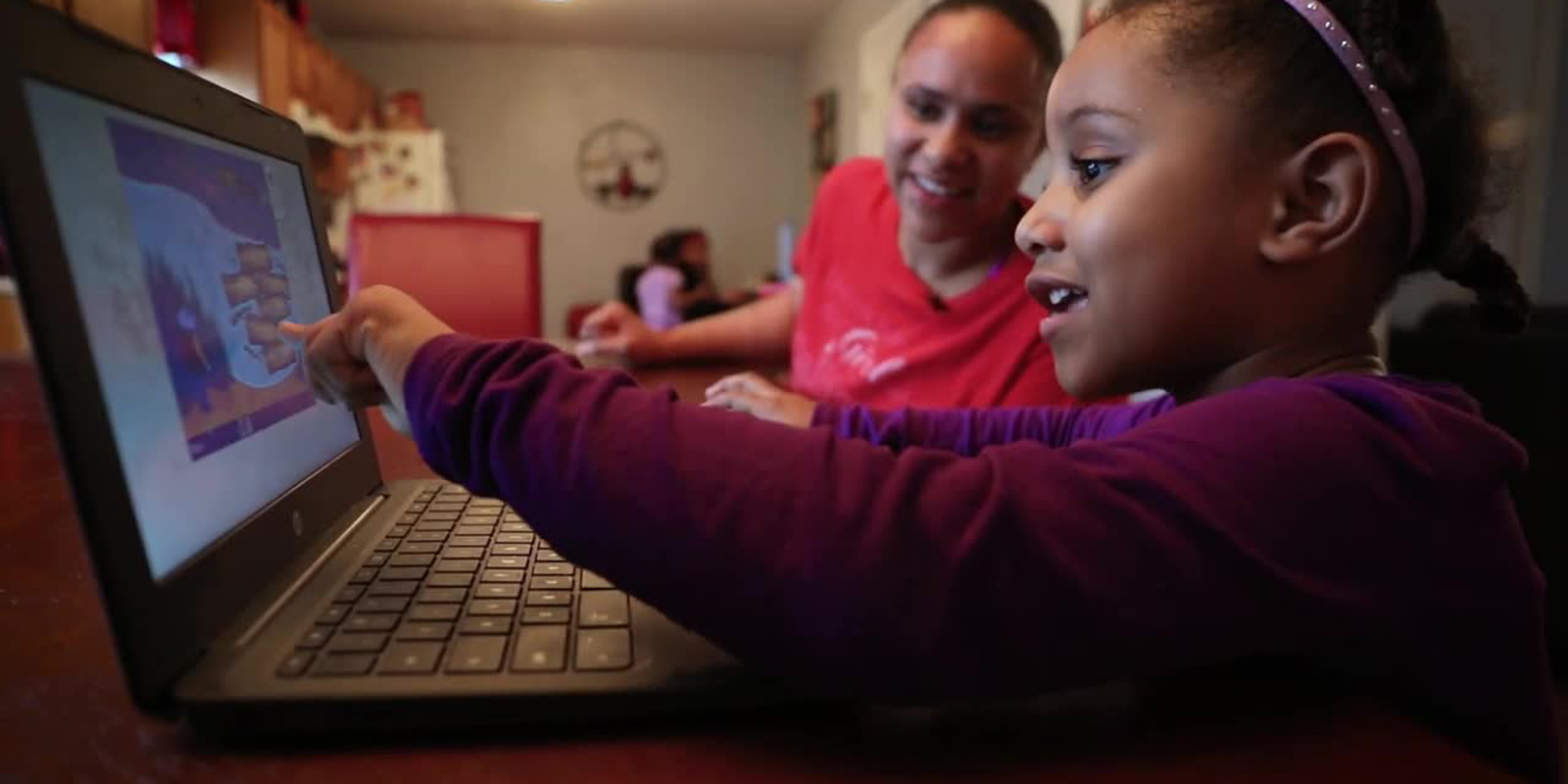Those of us who watched too much TV in the 1970s probably remember commercials extolling long-distance phone calls as The Next Best Thing to Being There.
Waterford UPSTART might consider resurrecting the slogan. Their online bite-size reading, math and social-emotional modules aren’t meant to replace center-based pre-K, which is widely accepted as the ultimate way to prepare children for kindergarten. They are, however, arguably the next best thing.
“We aren’t pre-K,” says Beth Plewa, Waterford’s vice president of government relations. “Or, in fact, school at all, but there’s a lot we can offer.”
Long before the pandemic kept so many of us at home, universal pre-K—which advocates have long promoted for its long-term benefits—languished on the wish list in many states. And even when it exists, Elliot Haspel has noted, it isn’t “universal” in the dictionary sense of the term.
Why aren’t all four-year-olds in pre-K? For one thing, demand dwarfs supply, a result of budget shortfalls that persist despite the evidence that funding correlates with learning. Some families live too far away from providers. Disabilities prevent some children from participating. And a number of parents, for a variety of reasons, simply aren’t interested in sending their children to pre-K.
David Lawrence, Jr., retired publisher of The Miami Herald, certainly understands the advantages of universal pre-K, having successfully pushed for it in Florida in 2002 (read the inspiring story here).
“We witnessed how it could help Florida children succeed,” says Thakur, who cites the importance of weekly check-in phone calls from coaches who help keep parents engaged with ideas to make learning fun.
An essay by Beverly E. Perdue and Jim Geringer, former governors of North Carolina and Wyoming, respectively, points out that the most successful digital learning programs “heavily encourage and support adult involvement and provide coaching for students and their parents to ensure that they have thoughtful, directed ways to engage with their children and empower them to learn.”
Last month, the Children’s Movement of Florida agreed to partner with Waterford to offer UPSTART to families in the state. Achieve Escambia, a coalition of top employers in and around Pensacola, was among the first to take up the offer. Head Start programs in Miami-Dade and Hillsborough counties are also enrolling children. Families get a free laptop and Wi-Fi hotspot. Waterford absorbs all the costs.
Launched in Utah in 2009, UPSTART has reached 25,000 four-year-olds in that state and is scaling and proving itself with a wide variety of populations, including African American children in Mississippi, English language learners in Arizona, refugee children in Philadelphia, as well as tribal communities and children with disabilities.
Plewa describes Waterford as both “a parent-empowerment program” and a full-on education studio, with animators, voiceover artists and programmers dedicated to creating exciting 15-minute content blocks. “We landed on the 15-minute-a-day dosage,” she explains, “because of the screen time and brain development research, as well as studies we have done of our program model.” In nine months, 15 minutes a day, five days a week, adds up to more than 50 hours of learning—which is about double the amount that research shows is normally required to attain mastery of key skills needed to read.
“UPSTART children are starting kindergarten at ‘kindergarten advanced’ or first grade readiness levels,” she says. Education Innovation and Research grants from the U.S. Department of Education have gone to prove and scale the model. A longitudinal study conducted by the Utah State Board of Education noted that “UPSTART participation had a large impact on students’ early literacy skill development” and concluded, “The strong program effects support wide-scale implementation across at-risk preschool populations.”
The pandemic could mean implementation happens even faster than Waterford anticipated. “UPSTART wasn’t designed for this moment,” Thakur says, “but it couldn’t be more appropriate.”
Our audacious idea is to take UPSTART across the country—not to replace anything; we want to serve children who otherwise would not have access to early education. We have the guts to take on the skeptics, we have the energy to do the work, and we have a plan.
It is the role of the states to educate their children.
- So first we will use philanthropy dollars to go into a state to pilot the program and get data. Every state believes it’s unique and wants to know that the program will work with its children before investing.
- Then we identify key leaders in the state to help us champion UPSTART as an option for unserved children.
- And together, we go to state legislatures to transition UPSTART from philanthropy to sustainable and scalable state funding. That plan has worked.
Resource:
🎧 Listen: WUWF showcases Waterford Upstart Summer Learning Path: Summer Program to Help with Lost Learning.

Mark Swartz
Mark Swartz writes about efforts to improve early care and education as well as developments in the U.S. care economy. He lives in Maryland.



